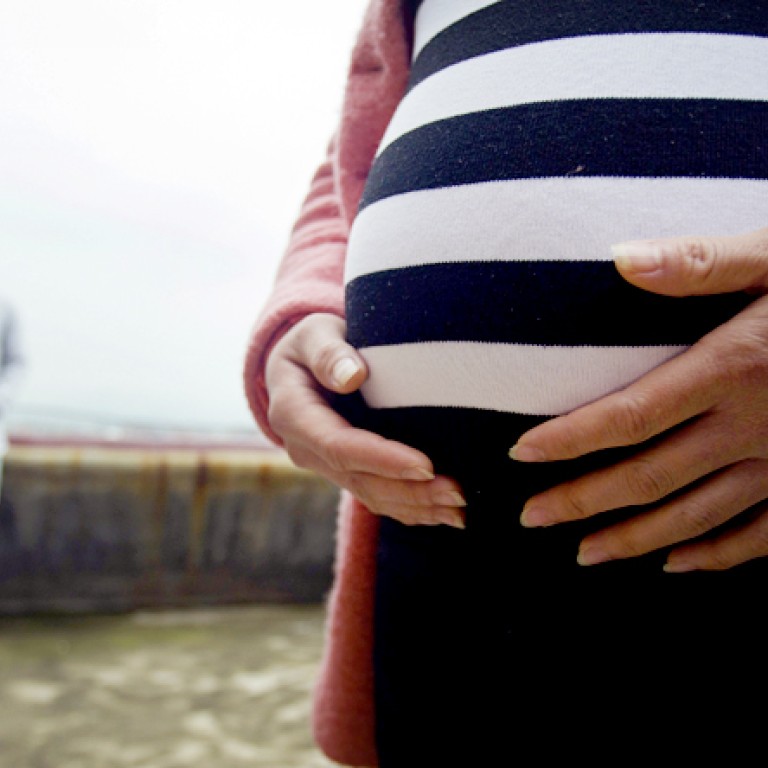
Zhejiang man arrested for arranging sex tests in Hong Kong for pregnant mainland women
Suspect allegedly sent blood from fetuses to clinics in city, where sex testing is legal
Zhejiang authorities have arrested the owner of a clinic who allegedly helped pregnant women find out the sex of their fetuses by sending their blood samples to Hong Kong for tests.
The arrest of Chen Jiguo, 35, came as part of the authorities' crackdown on selective abortion after the relaxation of the one-child policy. Chen had allegedly worked with a Hong Kong woman since March last year to take blood from pregnant women's veins for tests on their fetuses' sex.
He had allegedly arranged such tests for nearly 300 women by the time he was caught in February. Some of the women arranged adoptions after finding out that they were carrying girls.
"We have attached great importance to cracking down on those who illegally check fetuses' sex and undergo or perform selective abortions ever since the central government allowed couples with at least one single-child parent to have a second child," Ruian People's Procuratorate publicity official Lin Feifan told the .
The procuratorate arrested Chen for illegally practising medicine, an offence punishable by a sentence of up to three years in jail.
Chen's case is the first in Zhejiang and follows the conviction last year in Xiamen of two nurses for illegally practising medicine after they took pregnant women's blood samples and sent them to Hong Kong for tests on their babies' sex.
The mainland bans such tests for fear it will lead parents to selectively abort their unborn child in favour of having a boy. Genetic testing is legal in Hong Kong.
The mainland's strict birth-control policy used to allow for just one child, but it has been relaxed since last year to allow some families to have a second one. The mainland's sex ratio at birth is already unbalanced, with 118 boys for every 100 girls born.
Chen allegedly received from the Hong Kong woman syringes and tubes, which he used to collect pregnant women's blood samples. He then allegedly sent them to Shenzhen, where they were collected by another person to take to Hong Kong for tests.
The pregnant women would receive the test results three to four days later. They paid up to 7,500 yuan (HK$9,400) in the seventh week of pregnancy, or 6,000 yuan in the eighth week. Chen allegedly made 800 yuan for each blood sample he took.
A search on the internet for "Hong Kong DNA test" or "Hong Kong test for fetus sex" returned many search results that claimed to be able to tell the sex of fetuses after eight weeks of pregnancy.
A woman who worked as a receptionist for such a service in Shenzhen yesterday said the service was very much in demand. The blood samples received in Shenzhen would be sent across the border to Hong Kong within an hour, she said.
"We are a big medical company. There are many such requests and we send at least a dozen blood tests … across the border a day," she said.
Mainland authorities have warned mothers of the risks and consequences of such tests.
A Guangdong Health and Family Planning Commission official told Xinhua that parents who had obtained approval to have a second child but who had an abortion after finding out the sex would have their approval revoked and be fined for violating the birth-control policy.
In Hong Kong, genetic testing is legal as laboratory operators are free to provide different services to clients as long as they employ a qualified chemist.
Hong Kong College of Pathologists vice-president Dr Edmond Ma Shiu-kwan said tests to determine the sex of fetuses were simple and mostly accurate, but added that they were concerned about the moral issues involved when mainland mothers did so.

